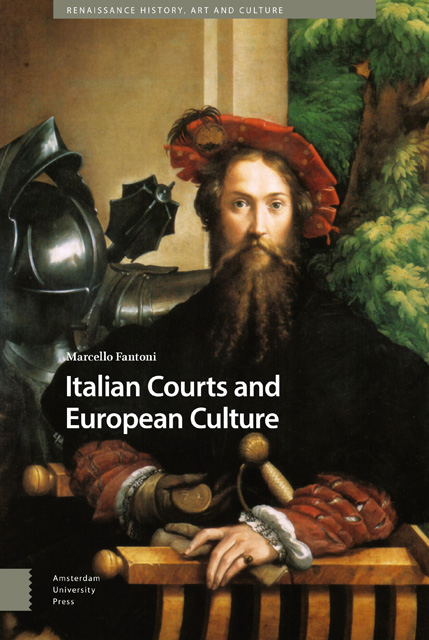1 - The Historiographical Journey
Published online by Cambridge University Press: 10 January 2023
Summary
To gain perspective, let us first get the historiography in focus. To understand the courts, paradoxically, we must start from the republican theory through which Italian history, from the Middle Ages to the Renaissance, has long been read. We know that Italian Renaissance republicanism was ‘de-masked’ decades ago. No further proof is needed. There is an abundance of literature on the subject, from how the myth originated in the writings of the Florentine humanists to how recent scholarship appropriated it.
Though this is not the purpose of this book, before we venture to explore new territories and formulate new theories, we must re-assess the political scenario of Early Modern Italy. The two endeavors are inseparable: it is illogical to think of hypothesizing a new cultural role for Italian courts if we do not first establish that they were, in fact, central to the Italian political context. This also entails retracing the process that gave birth to a certain idea of Italian courts. In doing so, we must also re-evaluate the traditional ingredients of the court saga, by examining the correlation of republican theoretical thought with actual government practice, and by gauging the consequences this had on the representation of the Italian Renaissance in its entirety. In particular, the Manichean picture of a peninsula divided into republics and principalities does not do justice to the wealth of its political geography. Underneath the surface of the supposed polarization, between the two opposing conceptions of politics and forms of rule, lies a much more nuanced and fluid archipelago of city and regional states that were dialectally interacting and constantly evolving.
Comparing republics and principalities also involves considering similarities along with differences and acknowledging that both were multifaceted universes, not immune from hybrid forms. In addition, the contrast between the two constitutional systems was probably less definite in the eyes of contemporaries than it is to us. In the early 1950s, the British scholar Nicolai Rubinstein was among the first to point out how historians themselves were victims of humanistic rhetoric, in which ‘Florentine liberty is praised over and over again.
- Type
- Chapter
- Information
- Italian Courts and European Culture , pp. 17 - 24Publisher: Amsterdam University PressPrint publication year: 2022

